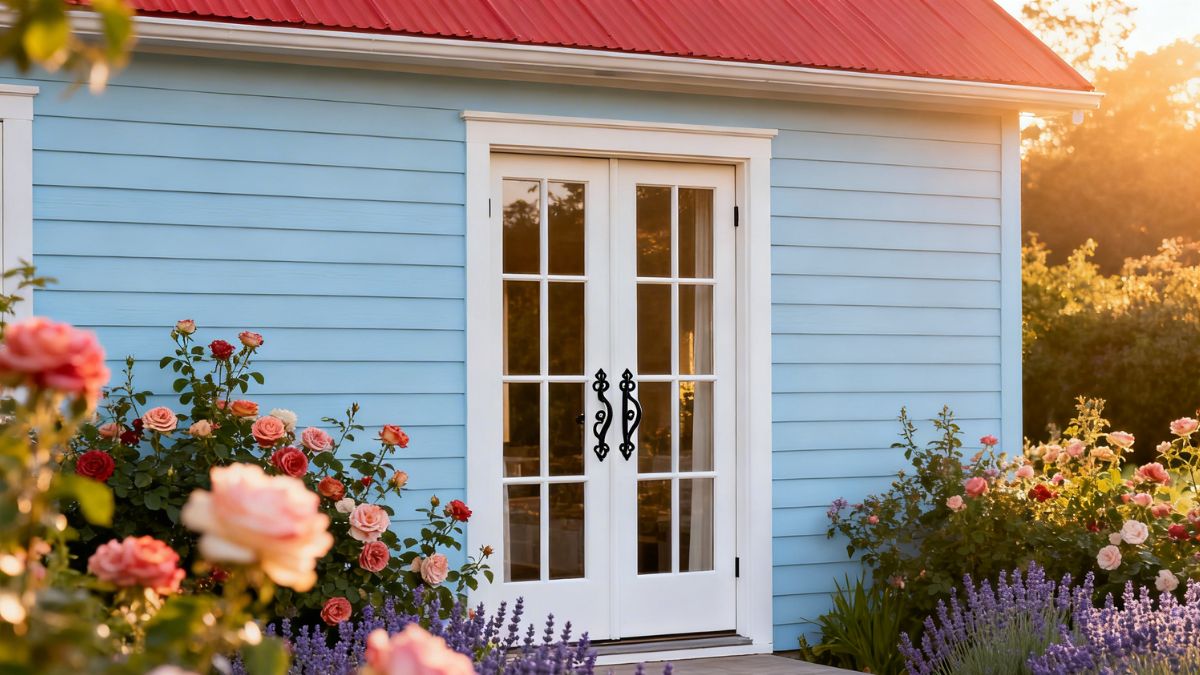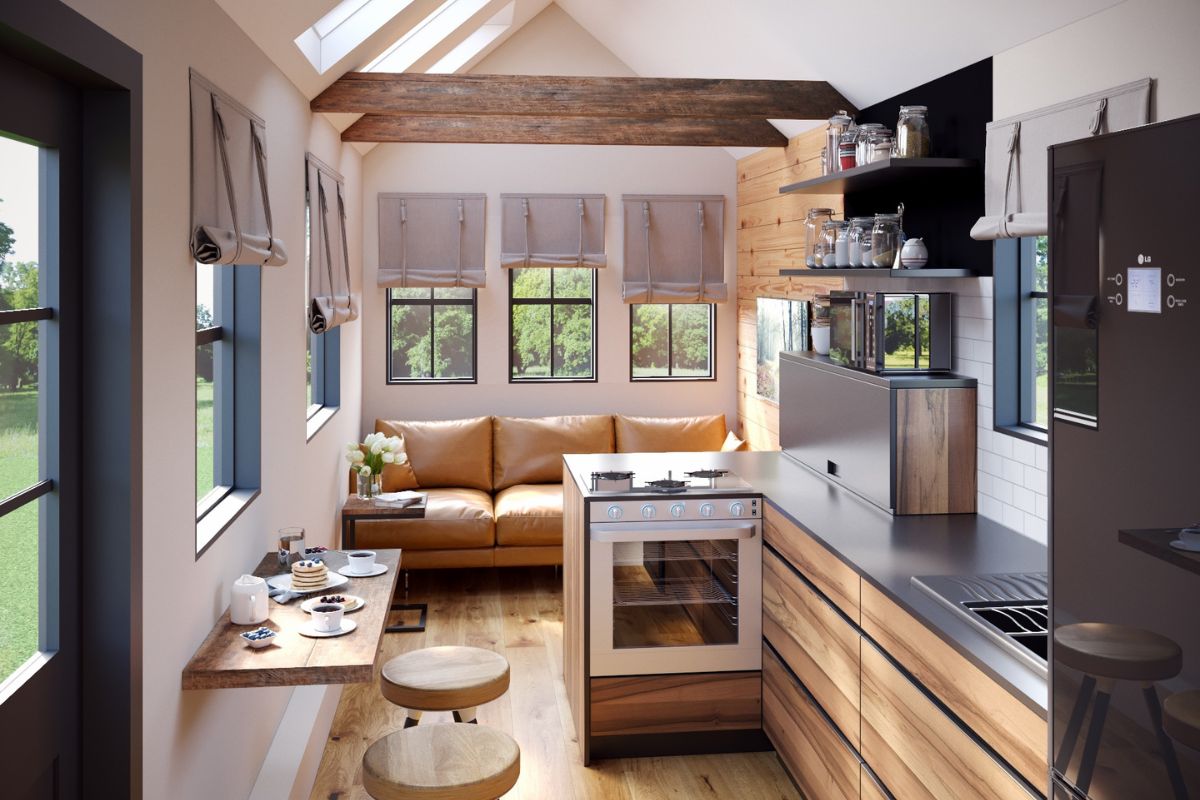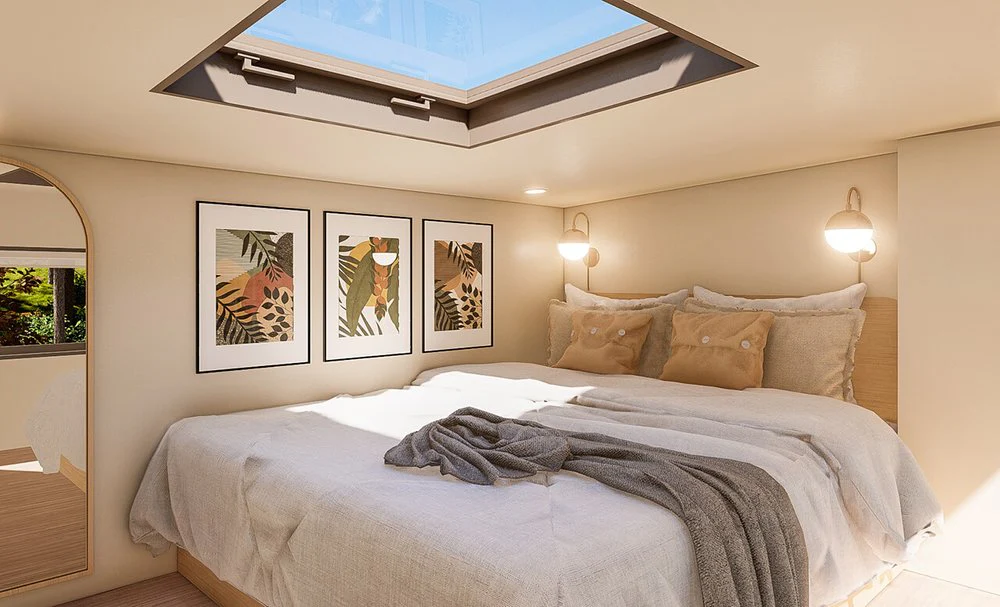How to Start Fresh in Your New Tiny Home
.jpg)
If you’re living on your own for the first time, it can be intimidating, especially if you’ve made the brave decision to live in a tiny home. This article will break down some of the best practices when adjusting to life in a tiny house so that you can make the most of it and enjoy your newfound independence!
Making a Budget
Creating a budget is a crucial step in starting fresh in your new tiny home. With limited space and resources, it's essential to make sure you allocate funds for all aspects of your life, including basic necessities such as rent, food, and utilities, as well as any miscellaneous expenses such as entertainment or travel. Additionally, a budget can help you identify areas where you can cut back on expenses and potentially save money, allowing you to put more money towards other goals, such as paying off a mortgage or building up your emergency fund. So, take the time to create a budget that works for your specific circumstances, and use it as a tool to help you start fresh in your new tiny home.
Finding the Right Tiny Home
There are numerous factors to consider when choosing your tiny home. To begin with, consider the location of your tiny home, and its proximity to essential services such as healthcare, grocery stores, and other amenities. Secondly, take into account the size of your tiny home and your daily activities to ensure it is livable, efficient, and cost-effective. Additionally, it is important to think about the amenities offered by the tiny home and identify which ones you need to live comfortably. Lastly, set a budget and consider additional costs such as utilities, maintenance, and repairs when calculating your total living expenses.
Remember that one of the main benefits of tiny living is simplicity and minimalism, and you want to avoid clutter and ensure that you have only the essentials. By finding a tiny home that meets your needs within your budget, you can enjoy the many benefits of tiny living, including reduced expenses, lower environmental impact, and a simpler, more intentional lifestyle.
Maintaining a Clean and Tidy Home with Storage Solutions
One of the most significant challenges when getting used to tiny home living is using your space wisely while making sure it stays clean and tidy at all times. To prevent clutter from piling up and keep things in order, try setting aside just 10 minutes each day to do a quick tidy-up. Trust us, this small daily task will make a huge difference in the long run and help you maintain a stress-free and clutter-free living environment. Utilize storage solutions like baskets or shelves if possible so that messes are contained in one area instead of taking up valuable floor space throughout your entire home.
Incorporate Healthy Habits, Like Meditation, Into Your Day
Let's face it, eating out every day is not only bad for your wallet but also for your health, especially when living on your own. That's why it's important to learn how to cook simple and delicious meals at home using ingredients that are easy to find and won't break the bank. With a little bit of practice and some creativity, you'll be able to whip up some amazing dishes in no time.
Additionally, incorporating healthy habits into your daily routine like exercising regularly or using a meditation app can help reduce stress levels while also contributing towards physical health which can lead to more energy during the day!
Quitting Your Job and Starting Fresh
Quitting a job and taking on a new one when you are out of your parental home for the first time can be a daunting prospect, but it can also be incredibly beneficial. It's an opportunity to reset and find something more suited to your abilities, life goals, and preferences. Doing so provides invaluable experience that you can add to your resume or CV, which not only adds credibility but also demonstrates the ability to adapt to new situations. In addition, if you find yourself in an overly stressful or toxic environment, this is a chance to look for greener pastures and avoid feeling trapped or overwhelmed.
Creating a CV with a Free Online Template
Starting fresh in a new career can be a daunting and intimidating experience, but with the right preparation, you will greatly increase your chances of success. The first step is to create an impressive resume or CV that accurately reflects your work history, qualifications, experience, and skills - you can do this if you use a template for a CV.
Take the time to make sure it looks professional and is free from any errors; this could make the difference between getting that job you want or being overlooked. Also, ensure it is tailored specifically for the specific job you’re applying for. In addition, spend some time researching your chosen industry and familiarizing yourself with its day-to-day operations; this will give you an edge over other applicants when attending interviews. After taking these steps, you should now have all the tools necessary to take that leap into your new career – good luck!
When making the transition from living with family or roommates into living independently in a tiny house, there are certain best practices one should adhere to — including making a budget, finding the right tiny home for yourself with accession amenities offered within budget constraints; creating an effective CV; maintaining cleanliness within limited spaces; learning cooking basics; incorporating healthy habits into a daily routine—all these contribute towards successful transition into adulting. By following the steps outlined above, anyone can make their life easier by enjoying their newfound independence!







.jpg)

